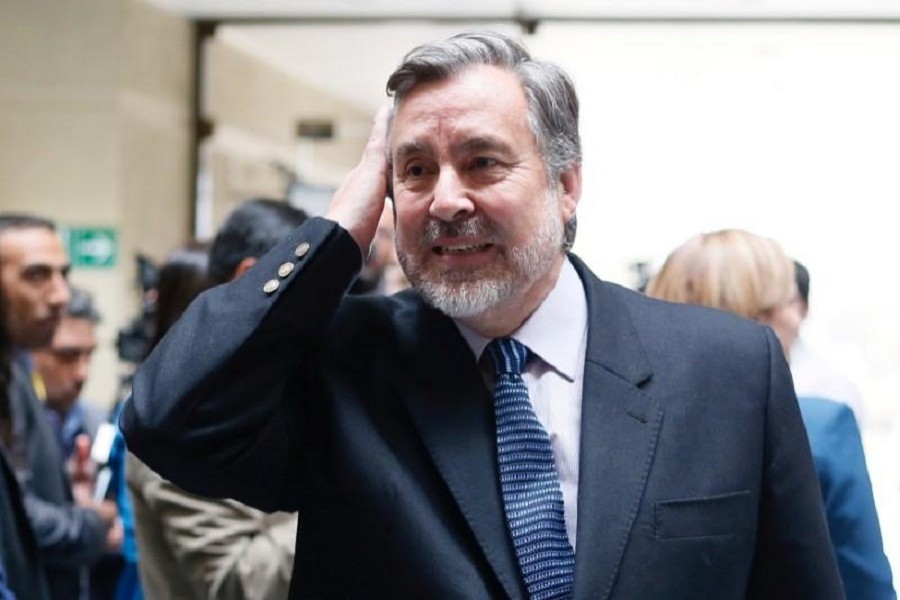Chileans vote in an uncertain runoff presidential election on Sunday that will determine if the world’s top copper producer stays on its centre-left course or joins a tide of Latin American nations turning to the right in recent years.
Billionaire former President Sebastian Pinera, 68, a conservative who was considered the front-runner but earned fewer votes than expected in last month’s first round, faces centre-left journalist and senator Alejandro Guillier, 64.
Both candidates would keep in place Chile’s longstanding free-market economic model, but Pinera has promised lower taxes to turbocharge growth while Guillier wants the government to press on with outgoing President Michelle Bachelet’s overhaul of education, taxes and labor.
The contest comes ahead of a long stretch of elections in Latin America in 2018. While populist candidates are polling near the top for the region’s largest economies of Brazil and Mexico, none advanced to the second round in Chile.
“One of the striking features, if you stand back, there’s this anti-establishment sentiment gaining ground in Latin America and the choices the (Chilean) voters face on Sunday are fairly mainstream,” said Michael Shifter, President of the Washington-based Inter-American Dialogue.
Chilean financial markets rallied in the final week of campaigning, after falling in the weeks after the first round vote on Nov. 19 when far-left Beatriz Sanchez performed better than pollsters had foreseen with over 20 per cent of votes, finishing third.
Guillier, the flagbearer for Bachelet’s Nueva Mayoria coalition, garnered just 23 per cent of first round votes, the weakest performance by any center-left candidate since Chile’s return to democracy in 1990 and a reflection of broad discontent with Bachelet.
Leftists complain her social policies are too timid while the conservative opposition says they have stoked market uncertainty and crimped private investment, causing average economic growth to slow to 1.8 per cent per year under Bachelet.
Confidence in Pinera winning the presidency has increased, according to a report from Credicorp Capital, because of his perceived strong performance in the final debate. Growing hopes about his victory, along with firm copper prices, propelled Chile’s IPSA stock index to a 7- per cent gain last week, its strongest weekly rally in eight years.
“I‘m voting for Pinera, he’s better for my work,” said Bea Vaccari, 28, a publicist from Argentina living in and registered to vote in Santiago.
Unlike most countries in Latin America, voting is not mandatory in Chile, a country of 17 million people with a $250 billion economy. While Sanchez has said she personally will vote for Guillier to protest Pinera, who led Chile between 2010 and 2014, it is not clear her supporters will do the same.
There have been no major polls made public since the first round when Pinera and Guillier were the top two candidates and earned the right to face each other on Sunday.
“Not coming to vote is handing a victory to the powerful elite. We can keep fighting for a more just Chile,” Guillier said at his closing rally on Thursday.
Slight edge for Pinera
Consultancy Teneo Intelligence said in a report that Pinera, who took more than 36 per cent of first-round votes, “is likely to retain a slight edge” although the difference was tighter than ever.
“If anything, that margin is likely to have narrowed even further over recent days, as both candidates have scored and lost points on the campaign trail in equal measure,” it said in a report.
Strong support for Sanchez and far-right Jose Antonio Kast in the first round pushed Pinera and Guillier to try to attract voters unhappy with the status quo in what is widely considered Latin America’s most developed nation.
Pinera, a Harvard-trained economist who made his fortune introducing credit cards to Chile in the 1980s, said he would create a public pension fund to compete with Chile’s much-criticised private pension funds, and expand free education.
By contrast, Guillier, a former radio and television journalist from northern Chile of more modest means, has pledged to increase access to free higher education and write workers’ and indigenous rights into a constitution to replace the current dictatorship-era document.
“I‘m voting for the best of the worst - Guillier,” said Eduardo Salas, a 72-year-old craftsman and Sanchez supporter. “Chile needs a more radical change, the economy is concentrated in the hands of too few.”


